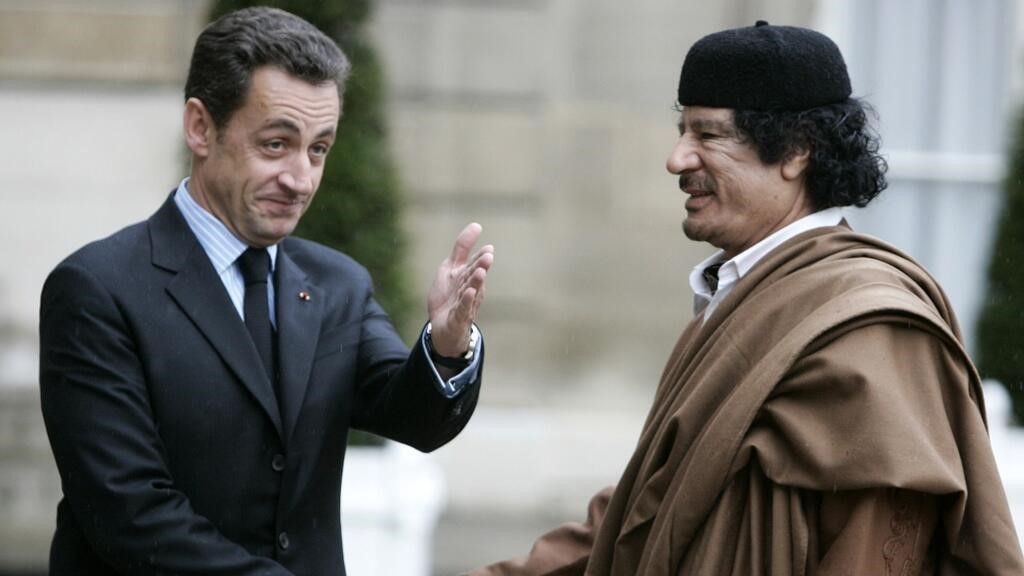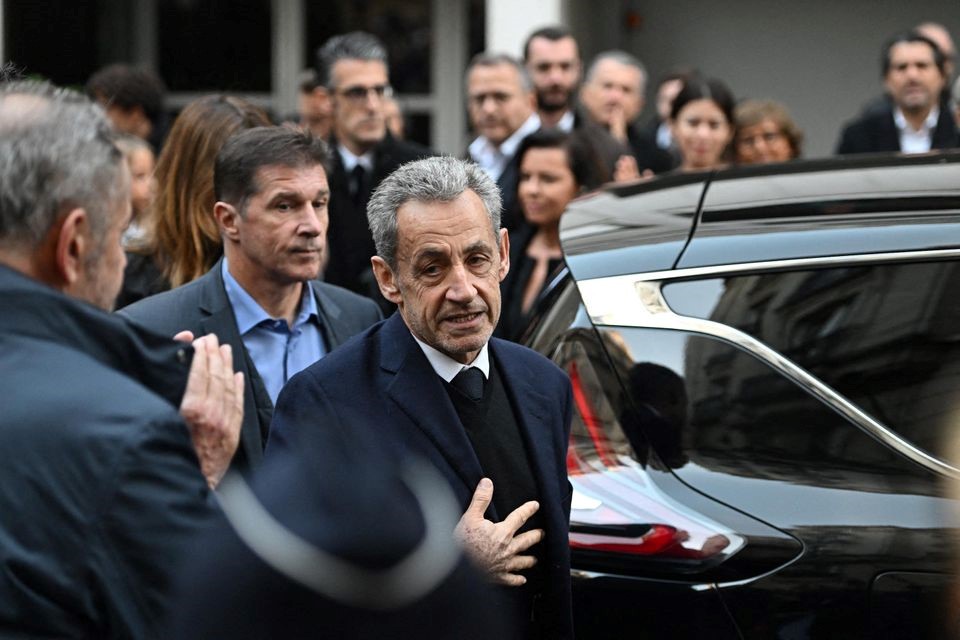Nicolas Sarkozy once promised to clean France out with a “pressure washer.” The man who was France’s 23rd president from 2007-2012, who dined with world leaders and married a supermodel as president, now stands to face a different kind of purification, several criminal convictions, which have made the “hyperpresident” France’s most legally beleaguered former president. His journey from golden hallowed halls of the élysée palace to courtrooms of criminal proceedings is one of success, ambition, and ultimately, abuse of authority.
Born in Paris, his roots are half Hungarian Protestant, a quarter Greek Jewish, and a quarter French Catholic. Mayor of Neuilly-sur-Seine from 1983 to 2002, he was Minister of the Budget under Prime Minister Édouard Balladur (1993–1995) during François Mitterrand’s second term. During Jacques Chirac’s second presidential term, he served as Minister of the Interior and as Minister of Finance. He was the leader of the Union for a Popular Movement (UMP) party from 2004 to 2007.
He won the 2007 French presidential election by a margin of 53.1% to 46.9% against Ségolène Royal, the candidate of the Socialist Party (PS). During his term, he faced the 2008 financial crisis, the late-2000s recession, the European sovereign debt crisis, the Russo-Georgian War (for which he negotiated a ceasefire), and the Arab Spring, especially in Tunisia, Libya, and Syria. He initiated the reform of French universities (2007) and the pension reform (2010).
He married Italian-French singer-songwriter Carla Bruni in 2008 at the Élysée Palace in Paris. In the 2012 presidential election, Sarkozy was defeated by the PS candidate François Hollande by a 3.2% margin. After leaving office, Sarkozy pledged to retire but returned in 2014 as the leader of the UMP (renamed The Republicans in 2015). After defeat in the Republican presidential primary in 2016, he retired from public life.
The bling-bling presidency
People started calling him “President Bling-Bling” because of his taste for Rolex watches, yacht trips with billionaires, and marrying singer-model Carla Bruni. None of this broke the law, but it showed just how much he loved being around money and luxury, and that obsession ended up costing him. “He was intoxicated by money and power,” observes journalist Mediapart founder Edwy Plenel. “He thought rules didn’t apply to him.”
Back in 2012, Sarkozy’s team was desperate. They were running out of options and out of money trying to beat François Hollande. The campaign rules set a hard limit: €22.5 million. They blew past that, spending €42.8 million. Almost double what was allowed. So what did they do? They turned to Bygmalion, a PR company, to cook up fake invoices. Instead of calling them campaign expenses, they hid the costs as party conventions. “Everyone knew,” said Jérôme Lavrilleux, the campaign manager. He actually broke down in court. “The president knew. We were told to win, no matter what.
The most unexpected conviction came from the “wiretapping scandal.” In 2014, investigators tapping Sarkozy’s line (part of the Libyan investigation) discovered that he was using a clandestine telephone registered in the name “Paul Bismuth” to discuss with his lawyer.
The wiretaps revealed Sarkozy attempting to bribe judge Gilbert Azibert with a top Monaco position in exchange for tips regarding another investigation into the budget of his campaign.
The Libyan bomb: The biggest scandal
The biggest bombshell still hanging over the trial: Sarkozy is accused of taking €50 million from Libyan dictator Muammar Gaddafi to fund his 2007 presidential run. A Libyan intelligence memo spelling out the deal Gaddafi’s son Saif al-Islam backed up the story of Middleman Ziad Takieddine’s confession (even though he took it back later). A trail of shady cash, and here’s the twist: Sarkozy later helped lead the charge that brought down Gaddafi in 2011. “He took the money, then killed his banker,” says Lebanese businessman Takieddine.

Nicolas Sarkozy has become the first French ex-president to go to jail, as he starts a five-year sentence for conspiring to fund his election campaign with money from late Libyan president Muammar Gaddafi. Sarkozy, who was president from 2007-2012, has appealed against his jail term at La Santé prison, where he will occupy a small cell in its isolation wing.
More than 100 people applauded and shouted “Nicolas!” as he left his villa in the exclusive 16th district of Paris, holding his wife Carla Bruni-Sarkozy by the hand. Moments after Sarkozy entered jail, his lawyer Christophe Ingrain said a request for his release had been filed. Nothing justified his imprisonment, said Mr Ingrain, adding, “He’ll be inside for at least three weeks or a month.”
Sarkozy has said he wants no special treatment at La Santé prison, although he has been put in its isolation section for his own safety, as other inmates are infamous drug dealers or have been convicted for terror offenses.
Ahead of his arrival at La Santé prison, Sarkozy gave a series of media interviews, telling La Tribune: “I’m not afraid of prison. I’ll keep my head held high, including at the prison gates.”

The former center-right leader was cleared of personally receiving the money but convicted of criminal association with two close aides, Brice Hortefeux and Claude Guéant, for their role in secret campaign financing from the Libyans.
As he appealed, Sarkozy is still considered innocent, but he has been told he must go to jail in view of the “exceptional seriousness of the facts”.
Sarkozy said he would take two books with him into prison, a life of Jesus by Jean-Christian Petit fils and the Count of Monte Cristo, Alexandre Dumas’s classic story of a man wrongly imprisoned who escapes to wreak vengeance on his prosecutors.
